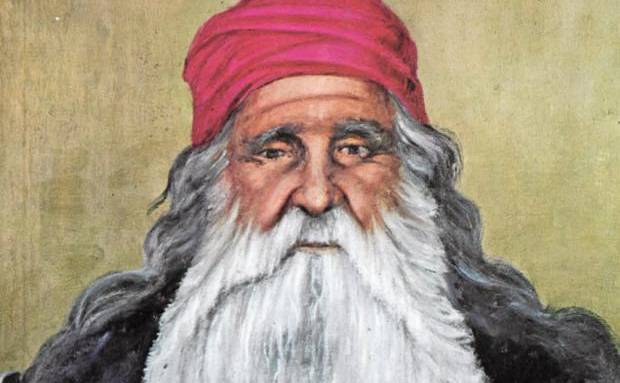Dimitrios Mitropetrovas–Commander-in-Chief of the Revolution of 1821

Dimitrios (Mitros) Petrovas, known as Mitropetrovas, was a leader of the Revolution of 1821, an old comrade-in-arms of Captain Zacharias and one of the leaders of the anti-government rebellions during the Bavarian Regency of Otto (1834). He was born in 1745 in Ano Garantza, Messenia, which after 1927 was renamed Ano Melpia. He was probably the son of Aggelis Petrovas, leader of a group of thieves during the Venetian period. Mitropetrovas developed activity against the Ottomans early on, while in 1770, he participated in the Orlov Revolt.
Mitropetrovas was a fraternal friend and comrade-in-arms with Constantis Kolokotronis, the father of Theodoros Kolokotronis. After Constantis's murder in 1785, Mitropetrovas took over the guardianship of the still-young Theodoros Kolokotronis and was the first to teach him martial arts.
In 1819, Mitropetrovas was initiated into the Friendly Society by Kyriakos Kamarinos. In 1821 (at the age of 76), he participated with his own military corps (askeri) in the liberation of Kalamata, which took place on March 23rd, 1821. Then, he followed Theodoros Kolokotronis in the military operations of Arcadia, where in May 1821, he participated in the battle of Valtetsi as the head of the Androusa and Leontari warriors. In 1822, he took part in the operations against the expeditionary force of Mahmut Dramalis and distinguished himself in the battle of Dervenakia.
Mitropetrovas was one of the bravest and wisest leaders of the Revolution, known as the "Nestor of the Struggle". Due to his old age, he was called "grandfather", and Kolokotronis always addressed him as "Barbas". The Old Man of Moria considered him a father figure and consulted him before any military operation. During the civil conflicts of 1823-1825, Mitropetrovas sided with Theodoros Kolokotronis and, as a result, was imprisoned by the Kountouriotis government in the monastery of Prophet Ilias in Hydra. Shortly after his release, in May 1825, he was promoted to general and participated in the operations against Ibrahim Pasha.
"Short and agile is the old man Mitros Petrovas from Garatza who will emerge in Valtetsi, by Nestor's opinion, and by the strength of the best lad of the Messenian chariots". (Sokratis Kougeas-Professor of History at the University of Athens)
After the end of the Revolution and the creation of the modern Greek state, many Messenian chieftains manifested hatred against the Bavarian Regency. Thus, on July 7th, 1834, they declared a rebellion in Mani and in August in Messenia, led by Captain Grizalis (son-in-law of Mitropetrovas) and Mitropetrovas himself. The rebels occupied about half of the Peloponnese, but the government forces managed to suppress the rebellion. The emergency military court that met in Kyparissia sentenced Giannakis Gritzalis, Anastasios Tzamalis and Mitropetrovas to death. The first two sentences were executed immediately, while Mitropetrovas was incomplete due to his advanced age (88 years old) and his significant contribution to the Struggle. After spending some time in prison, he was granted amnesty and returned to his hometown. He died in Ano Garatza (Ano Melpia) on March 12th, 1838, at the age of 92.



